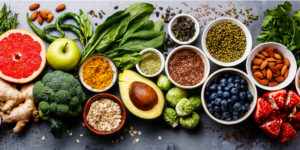
Having a healthy diet can significantly improve your general health and reduce the likelihood of you getting ill. The following paragraphs will provide information on which foods to eat, which foods to avoid and how to ensure your diet is balanced and nutritious.
A balanced diet
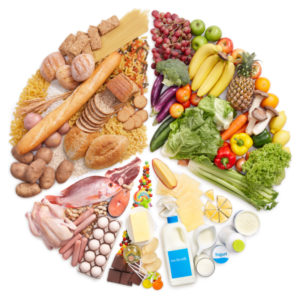
A balanced diet should contain foods from all the major food groups which include carbohydrates, proteins, fats and fruits and vegetables.
Carbohydrates
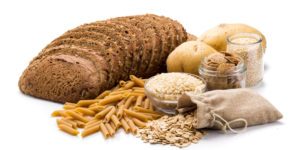
Carbohydrates come in both simple and complex forms; simple carbohydrates are usually contained in sugary foods which provide a quick burst of energy; these foods should be moderated carefully as they may contribute to weight gain and poor dental health as well as a rise in blood sugar levels.
Complex carbohydrates are usually starchy foods such as bread, cereals, pasta and rice; along with fruit and vegetables, these foods should form the basis of your diet. Complex carbohydrates release energy slowly, allowing your body to function effectively over a period of time and making you feel full for longer. You should try to eat wholegrain versions of these foods as they are lower in fat and subsequently better for the heart.
Proteins
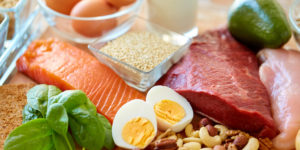
Proteins are essential for the everyday repair of the body’s cells and tissues and for growth and development. Proteins are usually low in fat and high in minerals like iron. Proteins should make up approximately 10-15% of your daily calorie intake. Examples of protein-rich foods include fish, eggs and meat. Vegetarians may choose to eat cheese, pulses and beans to bolster their protein intake.
Fats

Contrary to popular belief, fats are not the only contributor to weight gain and should not be cut out of a diet under any circumstances; this is counter-productive and may affect your general health.
Essential fats are needed to transport and absorb certain minerals and vitamins. You should try to moderate your intake of fats, especially saturated fats, which can contribute to fatty deposits in the arteries and cause heart disease and strokes.
Fast food and fried foods are high in saturated fats and should be eaten very rarely. Unsaturated fats are less harmful and can be beneficial for your health; examples of these foods include avocadoes and oily fish. Fat intake should not exceed 70 grams per day for women and 90 grams per day for men.
Fruits and vegetables
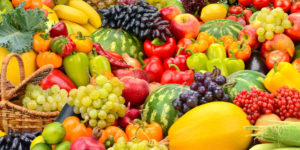
Fruits and vegetables provide a huge range of vitamins, minerals and nutrients which help to improve the functioning of the body and boost the immune system. You should try to eat at least 5 portions of fruit and vegetables each day; this includes soups, juices and smoothies, as well as individual items.
Try to eat a range of fruits and vegetables as this will ensure you get all the nutrients you need. Fruits and vegetables should make up roughly a third of your daily calorie intake. Vegetables are low in fat and high in fibre, which will help digestion.
Calcium

Calcium is important for the development of strong bones, nails and teeth; it is particularly important for young children to get lots of calcium as this will enable them to grow fully. Calcium can be found in milk, cheese and yoghurts. If you have a lactose intolerance, soya products are also rich in calcium.
Home cooking

Home cooked food is generally much more nutritious than readymade food; cooking at home also allows you to control what you put in your food. Ready meals are often high in salt and sugars and lack the nutrition provided by a homemade dinner.
Try to encourage children to get involved in the preparation and cooking of food; this will encourage them to develop an interest in food and foster good habits for later life. Try to moderate the intake of fast food, as these foods are often high in saturated fats and low in nutrients and minerals.
Eating on the go

Many people find it difficult to find time to sit down and eat a nutritious meal, especially in the middle of the day; consequently, an increasing number of people resort to convenience foods such as pasties, pies, pizzas, burgers and chips.
All of these foods are high in fat and salt and do not contain any of the vitamins and minerals needed for a healthy body. If you are in a hurry, try to grab a sandwich, pasta salad, wrap or salad; these options are much healthier and will probably make you feel fuller for longer.
If you are rushed in the evening or can’t be bothered to cook, try and do something quick and easy like a stir-fry or pasta dish.
